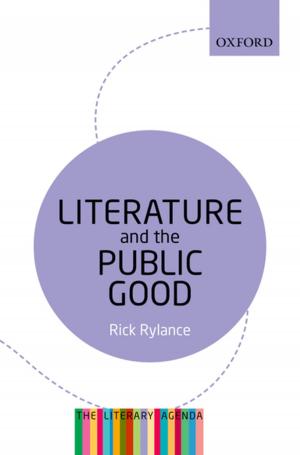The Oxford Handbook of Causation
Nonfiction, Religion & Spirituality, Philosophy, Metaphysics, Science & Nature, Science| Author: | ISBN: | 9780191629464 | |
| Publisher: | OUP Oxford | Publication: | January 12, 2012 |
| Imprint: | OUP Oxford | Language: | English |
| Author: | |
| ISBN: | 9780191629464 |
| Publisher: | OUP Oxford |
| Publication: | January 12, 2012 |
| Imprint: | OUP Oxford |
| Language: | English |
Causation is a central topic in many areas of philosophy. In metaphysics, philosophers want to know what causation is, and how it is related to laws of nature, probability, action, and freedom of the will. In epistemology, philosophers investigate how causal claims can be inferred from statistical data, and how causation is related to perception, knowledge and explanation. In the philosophy of mind, philosophers want to know whether and how the mind can be said to have causal efficacy, and in ethics, whether there is a moral distinction between acts and omissions and whether the moral value of an act can be judged according to its consequences. And causation is a contested concept in other fields of enquiry, such as biology, physics, and the law. This book provides an in-depth and comprehensive overview of these and other topics, as well as the history of the causation debate from the ancient Greeks to the logical empiricists. The chapters provide surveys of contemporary debates, while often also advancing novel and controversial claims; and each includes a comprehensive bibliography and suggestions for further reading. The book is thus the most comprehensive source of information about causation currently available, and will be invaluable for upper-level undergraduates through to professional philosophers.
Causation is a central topic in many areas of philosophy. In metaphysics, philosophers want to know what causation is, and how it is related to laws of nature, probability, action, and freedom of the will. In epistemology, philosophers investigate how causal claims can be inferred from statistical data, and how causation is related to perception, knowledge and explanation. In the philosophy of mind, philosophers want to know whether and how the mind can be said to have causal efficacy, and in ethics, whether there is a moral distinction between acts and omissions and whether the moral value of an act can be judged according to its consequences. And causation is a contested concept in other fields of enquiry, such as biology, physics, and the law. This book provides an in-depth and comprehensive overview of these and other topics, as well as the history of the causation debate from the ancient Greeks to the logical empiricists. The chapters provide surveys of contemporary debates, while often also advancing novel and controversial claims; and each includes a comprehensive bibliography and suggestions for further reading. The book is thus the most comprehensive source of information about causation currently available, and will be invaluable for upper-level undergraduates through to professional philosophers.















